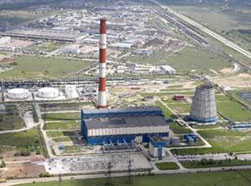Ecology, Energy, Estonia, Investments, Legislation
International Internet Magazine. Baltic States news & analytics
Monday, 17.11.2025, 21:06
First waste-to-energy plant in the Baltics to be completed in 2012 in Estonia
 Print version
Print version |
|---|
The cost of the combined heat and power energy-generating unit, to be delivered as a turnkey solution, is about 1.5 billion Estonian kroons, informs LETA.
The new unit will be able to burn up to an annual 220,000 tonnes of municipal waste that remains after sorting as well as construction and industrial waste.
"Although the energy, obtained from ordinary municipal wast,e is comparable to that of oil shale, a large share of current waste simply ends up in landfills. With the Iru power plant’s waste combustion unit, we will in two years' time become the first in the Baltics to start recovering a significant quantity of the waste generated domestically on an everyday basis," said Sandor Liive, CEO of Eesti Energia. "This will reduce environmental impact considerably, while offering us the opportunity to generate heat and power using domestic fuel available at a stable price. Our waste collection fees will be lower than the charges at landfills and the heat price will be more stable and lower than that of heat generated from gas or biomass."
"We, CNIM, as constructor of the turn-key project will build for our client Eesti Energia a plant with one of the highest efficiency achieved in Europe. This plant will be designed with the most advanced technologies for the combustion and energy conversion systems as well as the flue gas cleaning system. CNIM together with his long-time German technology partner Martin GmbH will provide the most reliable and highest performing combustion equipment. The air pollution control is based on the latest standards and is designed to comply with emissions below the limits established by the European Legislation," said Stefano Costa, Member of the Management Board of CNIM.
The thermal energy capacity of the new CHP plant will be 50 MW and the electrical power capacity will be 17 MW. This will complement the existing capacities at Iru power plant (648 MW of heat and 190 MW of electricity).
The mass waste combustion systems that are most common in commercial use transform about 85% of the energy contained in waste into electricity and heat. A waste-to-energy unit that runs on technology similar to that of Iru will soon be completed in the Finnish capital Helsinki. This technology is also the most common solution in Sweden and Denmark, and there are over 400 such plants altogether in Europe.








 «The Baltic Course» Is Sold and Stays in Business!
«The Baltic Course» Is Sold and Stays in Business!

